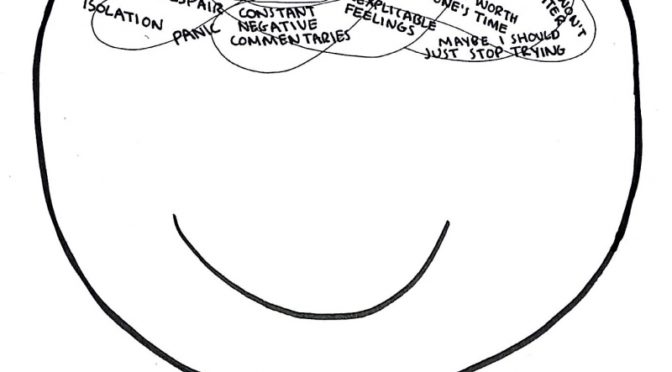A Closer Look at Anxiety
Posted by Collaborative Counseling

Anxiety disorders are one of the most common mental health issues people face. While it is common, there is still some misunderstanding about what anxiety can look like. Lets take a closer look.
What is Anxiety?
Anxiety is a general term that refers to many disorders such as generalized anxiety disorder, panic disorder & panic attacks, separation anxiety and specific phobias (e.g. germs, flying, driving etc.). All of the disorders categorized under Anxiety, share the concept of excessive fear that results in a behavioral and functional disturbance. Excessive fear can refer to an emotional response to either a perceived threat or anticipation of a future threat. Panic attacks are an example of a fear response.
It is important to note that anxiety is a normal part of life. However, when anxiety interferes with daily activities due to overwhelming and persistent worry, you may have an anxiety disorder.
Risk Factors
There are several risk factors for developing anxiety. Major ones include:
- Genetics: Anxiety has a hereditary risk factor as it can run in families.
- Environmental Factors: Parenting behaviors such as being controlling or exhibiting anxious behavior can be risk factors for children.
- Personality: Those who are introverted and less conscientious may be at risk for an anxiety disorder
- Gender: Women are more likely than men to develop anxiety.
Treatments for Anxiety Disorders
There are many different forms of therapy and treatment for anxiety. Some of the most common include:
- Cognitive behavioral therapy (CBT) is a type of therapy that focuses on changing the way you think and behave. CBT can help you identify and challenge negative thoughts and beliefs that contribute to your anxiety, and learn new coping skills to manage your anxiety symptoms. Learn more about CBT in this article: APA – What is Cognitive Behavioral Therapy?
- Exposure therapy is a type of therapy that involves gradually exposing you to the things or situations that make you anxious. This can help you learn to manage your anxiety and cope with your fears.
- Acceptance and commitment therapy (ACT) is a type of therapy that focuses on helping you accept your anxiety and commit to living a meaningful life despite your fears.
- Dialectical behavioral therapy (DBT) is a type of therapy that combines CBT, mindfulness, and acceptance skills to help you manage your emotions and cope with difficult situations.
- Interpersonal therapy (IPT) is a type of therapy that focuses on your relationships with others. IPT can help you improve your communication skills, resolve conflict, and build stronger relationships.
In addition to therapy, there are also a number of medications that can be used to treat anxiety. These medications work by changing the way your brain functions, and can help to reduce your anxiety symptoms.
However, if you are struggling with anxiety, it is important to seek professional help. A therapist or doctor can help you develop a treatment plan that is right for you.
Steps you can take to get help for anxiety disorders
-
- Talk to your doctor. Your doctor can refer you to a therapist or counselor who specializes in anxiety disorders.
- Do your research. Once you have a few names, take some time to research each therapist or counselor. Read online reviews, and see if you can find any testimonials from other patients.
- Schedule a consultation. Once you have found a few therapists or counselors that you are interested in, schedule a consultation with each one. This will give you a chance to meet with them and see if they are a good fit for you.
- Be patient. Finding the right therapist or counselor can take time. Don’t be afraid to try out a few different people until you find someone who you feel comfortable with.
- Self care. Begin with some basic self care. You can learn more at our blog at: Simple Self Care
For therapy support in Minnesota or Wisconsin, you can reach out to our team to help you find a therapist by calling 763-210-9966 or requesting an appointment by clicking here.

 View Our Locations
View Our Locations Request Appointment
Request Appointment